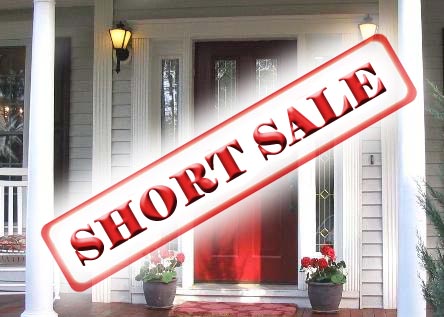In today’s economic crisis and down real estate market this is a term that comes up a lot. But what exactly does it mean? In simple terms, a short sale is a tool that is used by banks and borrowers who have come on difficult times, as an alternative to foreclosure when a borrower cannot repay their loan.
When a homeowner takes out a mortgage loan to purchase their house, they agree to pay a certain sum of money, known as the principal. This principal balance is paid over the course of 15, 20 or 30 years plus interest.
In the event the homeowner is unable to, or stops making their mortgage payment, the bank, or lending institution will start the foreclosure process. The bank will always give the homeowner along the way several opportunities to pay the back-owed payments, and stop the process. In the event the homeowner cannot catch-up their payments, the bank will proceed with the impending foreclosure.
At this point homeowners have a few options to consider.
- They can simply wait for the bank to take their home or walk away from it.
- They can try to get a loan modification, where the bank will change the condition of their loan and either lowers the principal amount owed, the interest rate they are paying, or the term of the loan and thus lowering their monthly payments to an affordable amount.
- They can give the property back to the bank (known as a deed in lieu of foreclosure) or
- The final option is that the bank can authorize a “short sale.
A short sale is an agreement by the bank to allow the borrower to sell the property at a discounted price.
The homeowner will hire a real estate agent and put the house on the market just like any other sale, except the home will be priced according to current market value and conditions, which is typically much less then the homeowners owes on their mortgage. Buyers will come and tour the home and make offers.
In the end, the bank will have to approve any “short sale” offer made by a potential buyer before the sale can continue. Once the bank has made that agreement, the property can be sold just as it would normally.
The bank is essentially agreeing to accept the purchase price as a payment in full on the loan that is owed. It frees up the borrower to walk away from the property without a foreclosure on their credit, and it keeps the bank from having to take the property back.
It’s my opinion that a short sale is a better option than a foreclosure, as you’re cooperating with the bank in selling a home they loaned you money on, that you can no longer afford ~ short sale or foreclosure, expect your credit to be damaged.
Additionally, it’s important as part of the short sale agreement, that the bank agrees not to come after you for the “short payoff”… in some cases with foreclosure or short sale, the bank may attempt to collect from you the negative balance and or 1099 you for the “gift”, which you’ll pay taxes on.
Always consult a professional REALTOR® and or tax and legal professionals that are experienced in “short sales” to analyze your best options.
Author Jeff Hammerberg is the Founding CEO of www.GayRealEstate.com ~ Free Instant Access to the Nation’s Top Gay, Lesbian and Gay Friendly Realtors Coast to Coast.



